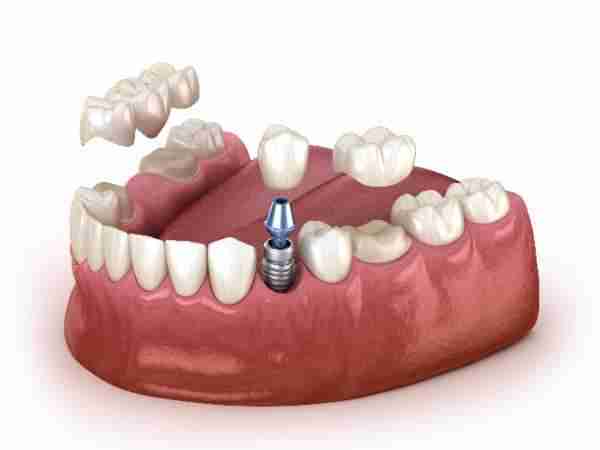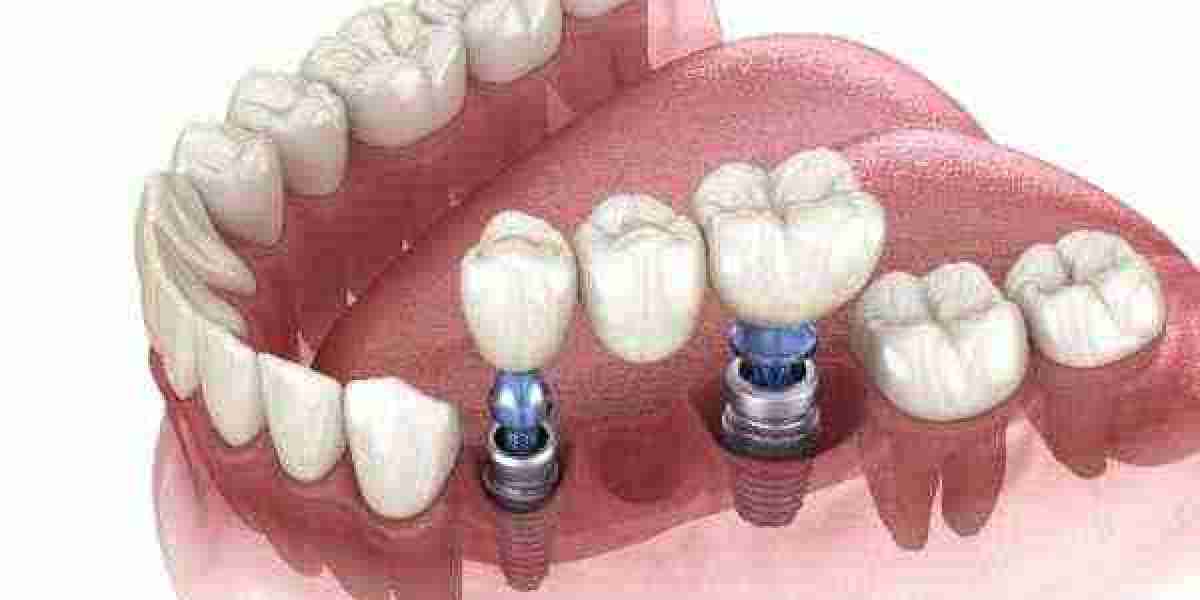Dental implants have become one of the most sought-after solutions for missing teeth, offering a long-lasting, functional, and aesthetically pleasing alternative to dentures or bridges. While the concept is simple, replacing tooth roots with titanium posts to support crowns, the decision to undergo implant treatment is far from trivial. Not every individual is an ideal candidate, and careful assessment is crucial to ensure successful outcomes. Understanding the criteria for dental implant suitability allows patients to make informed choices, reduces risks, and guarantees that their investment in oral health is worthwhile.
What Are Dental Implants?
Dental implants are small titanium posts surgically placed into the jawbone to replace missing tooth roots. They act as a stable foundation for dental crowns, bridges, or even dentures, mimicking the function and appearance of natural teeth. Unlike removable dentures, implants integrate with the jawbone through a process called osseointegration, providing a durable and reliable solution.

Benefits of dental implants include:
- Restored function: Improved ability to chew and speak comfortably.
- Bone preservation: Prevents bone loss and maintains facial structure.
- Durable solution: Long-lasting with proper care.
- Aesthetic enhancement: Provides a natural-looking smile.
Dental implants are often considered the gold standard for tooth replacement because of these functional and cosmetic advantages.
Who Is a Candidate for Dental Implants?
Determining candidacy for dental implants involves assessing a combination of oral and overall health factors. While many adults are eligible, not everyone meets the necessary requirements.
General eligibility criteria include:
- Good overall health: Conditions like uncontrolled diabetes or immune deficiencies may affect healing.
- Healthy gums: Adequate gum health is essential for implant support.
- Sufficient jawbone: Adequate bone density is required to stabilise the implant.
- Commitment to oral hygiene: Maintaining oral care and attending follow-ups is vital for long-term success.
Factors that can influence suitability:
- Smoking or tobacco use
- Severe bone loss
- Certain medications affecting bone healing
Understanding these criteria ensures patients can anticipate whether dental implants are a realistic and safe option.
Age and Health Considerations
Age plays a role in dental implant suitability. Implants are typically recommended for adults whose jaws have fully developed. Younger patients with incomplete jaw growth may need to wait until skeletal maturity is reached.
Health conditions to consider:
- Chronic illnesses: Diabetes or cardiovascular conditions require careful management before implantation.
- Medications: Some medications, particularly those affecting bone metabolism, can impact implant success.
- Lifestyle factors: Smoking, heavy alcohol consumption, or poor nutrition can reduce healing efficiency.
A professional evaluation with a Dentist in Earlsfield can clarify any health concerns and determine whether implants are a safe and viable option.
Jawbone and Oral Structure Requirements
Successful dental implants rely heavily on the quality and quantity of the jawbone. Adequate bone density ensures the implant remains stable and integrates properly.
Key points regarding jawbone suitability:
- Evaluate jawbone height and width to support implant placement.
- Assess bone quality to ensure proper osseointegration.
- Consider bone grafting if natural bone is insufficient, a procedure that can expand eligibility.
Imaging techniques such as X-rays or CT scans allow dentists to precisely measure bone structure, which is essential in creating a customised implant plan.
Lifestyle and Oral Hygiene Factors
Patients’ daily habits directly impact the success of dental implants. Maintaining excellent oral hygiene and a healthy lifestyle is vital before, during, and after treatment.
Important lifestyle considerations include:
- Quit smoking: Reduces the risk of implant failure.
- Daily oral hygiene: Brushing and flossing remove plaque and prevent gum disease.
- Regular dental check-ups: Early detection of problems ensures long-term implant success.
Commitment to these habits improves healing, prevents complications, and ensures a durable, functional smile.
Consultation and Assessment Process
The first step in pursuing dental implants is a thorough consultation with a dental professional. This appointment evaluates overall suitability and creates a personalised treatment plan.
Typical consultation steps:
- Comprehensive oral examination
- Review of medical and dental history
- Imaging (X-rays, CT scans) to assess bone and oral structures
- Discussion of expectations, timelines, and costs
Professional guidance, such as that provided by a dental Implant Earlsfield specialist, ensures that treatment is tailored to the patient’s unique oral anatomy and health status. This evaluation reduces the risk of complications and increases the likelihood of a successful outcome.
Risks and Considerations
While dental implants boast high success rates, ignoring suitability criteria can lead to complications. Patients who do not meet the necessary conditions may face implant failure, infections, or delayed healing.
Key risks include:
- Infection around the implant site
- Poor osseointegration leading to implant instability
- Bone loss if the jaw is insufficient
- Complications due to uncontrolled health conditions
A professional assessment ensures that potential risks are managed proactively, giving patients confidence in their treatment choice.
Maintenance and Long-Term Care
Dental implants need regular maintenance, just like your natural teeth. Maintaining oral hygiene and scheduling regular check-ups is crucial for longevity.
Maintenance tips:
- Clean your teeth and implants thoroughly every day, brushing and flossing all areas.
- Attend routine dental visits for monitoring
- Steer clear of tough or sticky foods that may harm your implant.
- Use a night guard if prone to grinding
Proper care ensures implants remain functional, aesthetic, and long-lasting, allowing patients to enjoy a confident smile for years.
Cost and Investment Considerations
Dental implants are a long-term investment in both oral health and aesthetics. Although dental implants can be more expensive than alternative tooth replacement methods, their long-lasting durability and effectiveness often make the investment worthwhile.
Considerations when evaluating cost:
- Initial consultation and imaging
- Surgical placement of implants
- Any additional procedures, such as bone grafts
- Custom crowns or bridges
Discussing costs upfront with a Dentist in Earlsfield helps patients plan financially and understand the value of a long-lasting solution.

Conclusion
Dental implants offer a reliable, aesthetically pleasing solution for missing teeth, but success depends on proper assessment and candidacy. Evaluating overall health, oral hygiene, jawbone density, and lifestyle factors ensures that implants are a safe and effective option. Professional guidance is crucial to creating a customised treatment plan, reducing risks, and maximising long-term results. For residents of Earlsfield, access to skilled dental professionals allows for thorough evaluation and personalised care. Taking the time to understand your suitability today sets the foundation for a healthy, functional, and confident smile in the future.

